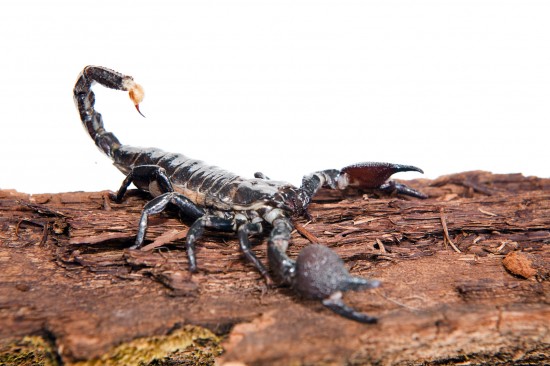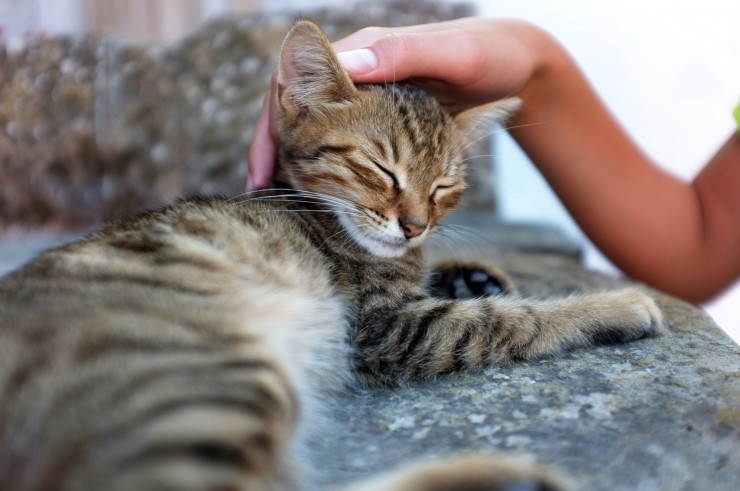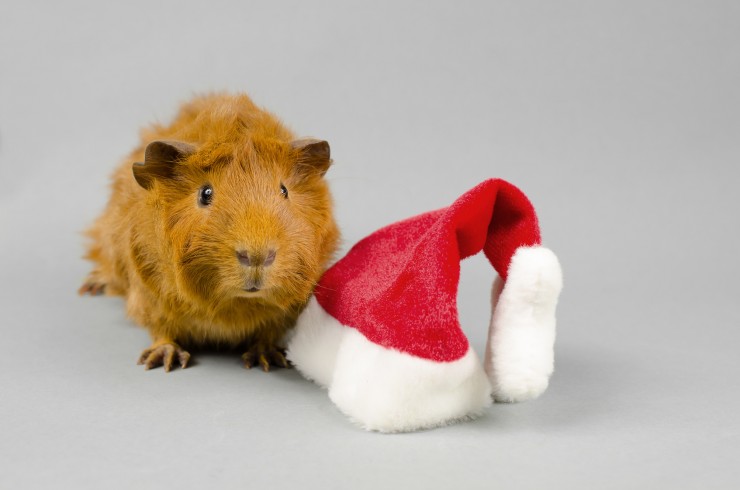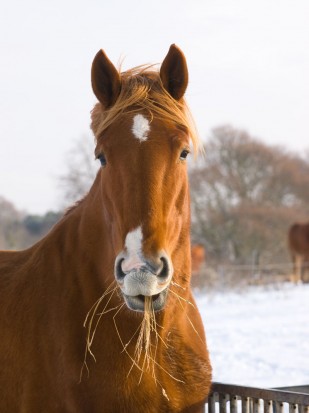

The scorpion might not be near to the top of most people’s wish lists of desirable pets, but nevertheless, they hold an almost hypnotic appeal for many invertebrate enthusiasts! Picking the right species of scorpion for the beginner is important, to make sure that your eventual pet is one of the more docile species, not particularly dangerous, and hardy and forgiving of the minor mistakes that can easily be made by the novice keeper.
Regardless of which species of scorpion you end up keeping, assuming that it is one of the varieties suitable for the beginner (such as the Emperor scorpion or the desert hairy scorpion) there are six important factors to take into consideration, and some tips to go about ensuring that your pet is happy, healthy and well cared for.
The various beginner-suitable scorpions are relatively easy to care for and tend to be fairly hardy, and able to tolerate the odd slip up in their correct care without suffering from any significant ill effects. However, there are a few things that you particularly need to look out for, in order to ensure that you don’t adversely affect the health and wellbeing of your pet.
Never leave live food in the tank if your scorpion is not eating it, as these prey insects might potentially attack your scorpion! While it is unlikely that they would win that fight, nevertheless they can potentially have an adverse affect on your scorpion’s health.
The temperature of your scorpion’s home is one of the key factors in maintaining good health, and you should make sure that the temperature is consistent and calibrated to suit the needs of the species of scorpion that you keep. If the tank is too cold, your scorpion will be lethargic and may refuse to eat. Providing an enclosure that is a little too hot can also be problematic, as this will distress your scorpion and can cause hyperactivity, and he may roll around on his back and even appear as if he is attempting to sting himself. If you observe this type of behaviour in your pet, check and correct the temperature of the enclosure.
Like all animals, scorpions need a clean home and enclosure in order to thrive. Scorpions are not particularly dirty animals, but they still require some care and maintenance! Do not leave any uneaten food (either alive or dead) in the enclosure, as this can quickly rot or cause other problems.
You will need to give your scorpion’s tank a thorough clean out every three months or so, replacing the substrate and cleaning the tank itself and anything in it with an appropriate disinfectant that is safe for use around arachnids.
You should also clean the water dish regularly, provide fresh, clean water at all times, and replace the water sponge frequently to avoid the build up of bacteria.
Scorpions need to have enough room to move around their enclosure freely, and enough open space to be able to stretch their legs, so do not be tempted to over-clutter the tank with ornamentation. While your scorpion may spend significant periods of time basking or not doing much at all, you should still see regular periods of activity, and notice your scorpion moving around. If you scorpion never appears to move, or only move minimally, they may be ill, and you should contact an expert for advice.
Make sure your scorpion eats a balanced, healthy diet by feeding a variety of live insects including crickets, mealworms and other small insects that are suitable for your pet. Ensure that all insects fed to your pet are gutloaded with a nutrient-rich compound before feeding to your scorpion, to raise their nutritional content. Use tongs or blunt tweezers to place each insect into the enclosure, and only place one live insect at a time into the tank in order to avoid food being left over or attacking your scorpion!
Remember that scorpions do not eat in the period leading up to a moult, and at other times, do not need to eat every day. So do not leave live food in the tank if your scorpion has shown no interest in it just in case he fancies a snack later on!
Pet scorpions are not cuddly, affectionate pets, and should be handled as little as possible for the wellbeing of both of you. As well as the potential for your scorpion to sting you if handled, scorpions are also fairly delicate, and can easily be hurt by being dropped or handled overzealously.
If you need to move your scorpion around or take them out of their tank in order to clean their enclosure, try to make handling fast, efficient and safe. You can either attempt to catch your scorpion in a small plastic box to hold them for the duration, or pick them out of the tank carefully with tongs, grasping them just below the sting, before placing them into an alternative container.
Some scorpions, such as the Emperor scorpion, do not enjoy company, and need to be kept individually. Keeping more than one scorpion of this type together can lead to fighting, and the weaker or smaller scorpion being eaten! Additionally, scorpions kept together may fight over food; they really do not generally play well with others!
Caring for beginner-suitable scorpions is not particularly difficult, as long as you do plenty of research about what is required first! As you cannot get veterinary care for scorpions in your average veterinary surgery, you should also have a plan and a backup plan about where to go for help if you have any concerns. This might mean seeking out a specialist exotics veterinary practice, making contact with experienced keepers, or talking to scorpion breeders about the best course of action to follow in case of any problems.
 How Cats Use Scent To Communicate With You And With Each Other
How Cats Use Scent To Communicate With You And With Each Other
 Smallest Working Terrier: Norfolk Terrier
Smallest Working Terrier: Norfolk Terrier
 The Dog Clothing Debate: Who Really Needs It And Why?
The Dog Clothing Debate: Who Really Needs It And Why?
 Keeping Pet Rodents Safe And Happy At Christmas
Keeping Pet Rodents Safe And Happy At Christmas
 Understanding The Difference Between Dominant Behaviour And Stubborn Behaviour In The Dog
Understanding The Difference Between Dominant Behaviour And Stubborn Behaviour In The Dog
 Does Your Dog Sound Different When They Bark?
Does Your Dog Sound Different When They Bark?
 Making Sure That Your Dog Gets Everything They Need Out Of Their Walks
Making Sure That
Making Sure That Your Dog Gets Everything They Need Out Of Their Walks
Making Sure That
 Why And How To Decide Who Would Keep The Dog If Your Relationship Broke Up
Why And How To De
Why And How To Decide Who Would Keep The Dog If Your Relationship Broke Up
Why And How To De
 How To Make Your Dog The Star Of The Show
How To Make Your
How To Make Your Dog The Star Of The Show
How To Make Your
 Horse Tips On How To Winter Feed & Keep The Bills Down
Horse Tips On How
Horse Tips On How To Winter Feed & Keep The Bills Down
Horse Tips On How
 The Chihuahua And Dental Issues
The Chihuahua And
The Chihuahua And Dental Issues
The Chihuahua And
Copyright © 2005-2016 Pet Information All Rights Reserved
Contact us: www162date@outlook.com